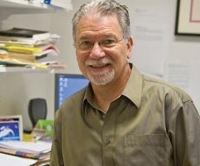Page 147 • (1,682 results in 0.054 seconds)
-
make or change my volunteer schedule? Contact the PLC staff using the literacy@plu.edu email address or speak directly with one of the Directors or Assistant Directors. Staff Assistant Director Lydia Downs lydia.downs@plu.edu Lydia is in her second year at PLU, majoring in elementary education and minoring in Peace Corps Preparation. Lydia is from Portland, OR. Education is something Lydia is very passionate about. She has been a camp counselor, teaches swim lessons, and coaches swim team every
-
. 2015 “Waste Not: Breaking Down the Food Equation” Nominated for a 2015 College Division EMMY Award in the long form non-fiction category by the Pacific Northwest Chapter of the National Academy of Television Arts & Sciences. National second-place award in the documentary category from the Broadcast Education Association’s (BEA) Festival of Media Arts Competition. Rising-Star Award in the documentary category from the Canada International Film Festival (CIFF). Grand prize finalist nomination in long
-
. These awards are named for Charles D. York and Cheryl L. Storm who were influential in the founding and shaping of the MFT program at PLU. Award amount: up to $8,000 Number of awards: Varies Eligibility: All students applying to the MFT program may apply for these scholarships. Terms of the award: These scholarships are awarded for one year and renewed for a second year by maintaining good standing in the program demonstrated by at least a 3.0 GPA and professional suitability and demeanor. In
-

was going to be my career, so I decided it was more practical for me to major in different things. I absolutely loved my Chinese class freshman year, and translation work interested me. I also wanted to study the Bible more, so I chose a second major in religion. My junior year, I went on the PLU exchange program to Chengdu and loved my time there, but really missed piano. When I came back to PLU, I still wasn’t able to play piano much because I was too busy with other classes. It was also at this
-

. In my piece, you will immediately hear two contrasting and opposing themes (the first in the woodwinds and percussion, the second in the brass). The themes are metrically polarized and in harmonically incompatible modes. Whereas a more conventional composition might develop the music by combining the themes, these two are like oil and water, and despite a third, more lyrical theme trying to mediate them, they persist in separate spheres until they are pushed together and thrown into conflict
-
! Here’s what Brianna had to say about the name Enrieké: First, I wanted something to stand out from all of the other names of campus monuments and buildings named after, mostly, Caucasian men and women. Second, I wanted to submit something that was representative of myself and the many, MANY hours I have spent in Rieke. I chose the name Enrieké not only because it is a clever integration of names and the name of the Rieke Science Center, but because of my identity as a mixed-race, Mexican woman in
-

experiments. Each day, I would either write up a new lab protocol, attempt to replicate a previous experiment’s results, or analyze data. I usually stayed until around 7 p.m., then collected my things, and biked home. When I started, I did one day of online lab safety training and then moved into shadowing for a few days. By the end of my first week, I had been given multiple lines of MOLM-13 acute myeloid leukemia cells. During my second week, I was preparing and running an assay to measure senescence in
-

Clinical Learning and Simulation Center, and the second floor Open Lab, used for both chemistry and physics lab instruction, in the Rieke Science Center. “These renovations will have a significant impact on learning and research,” says Auman. “They will allow for more mobility and interaction between students and faculty, as well as more hands-on learning for students that will set them up for being better prepared for their careers in science and healthcare.” MEETING CAMPUS – AND COMMUNITY – NEEDS“The
-
– a lot. They’ve been able to adjust the scope of their project, and as the second semester begins, they’ve started prototyping their robot and the implementation phase. This is where Kakar comes in. He likes to talk about “cracking the whip” – he even likes to pantomime the motion. He does it with a smile, but everyone gets the picture. This opportunity to work so closely with their professor is so valuable – Kakar is just as passionate about guiding the students through the capstone as the
-

educational tradition of working for issues of justice and tolerance. According to Professor Emeritus of History Philip Nordquist’s ’56 second book documenting the history of PLU “Inquiry, Service, Leadership and Care: Pacific Lutheran University 1988-2008,” faculty members were already studying and teaching about the Holocaust as soon as the 1950s. But when Christopher Browning began his tenure as professor in PLU’s history department in 1974, he brought with him a renewed interest in the subject
Do you have any feedback for us? If so, feel free to use our Feedback Form.


